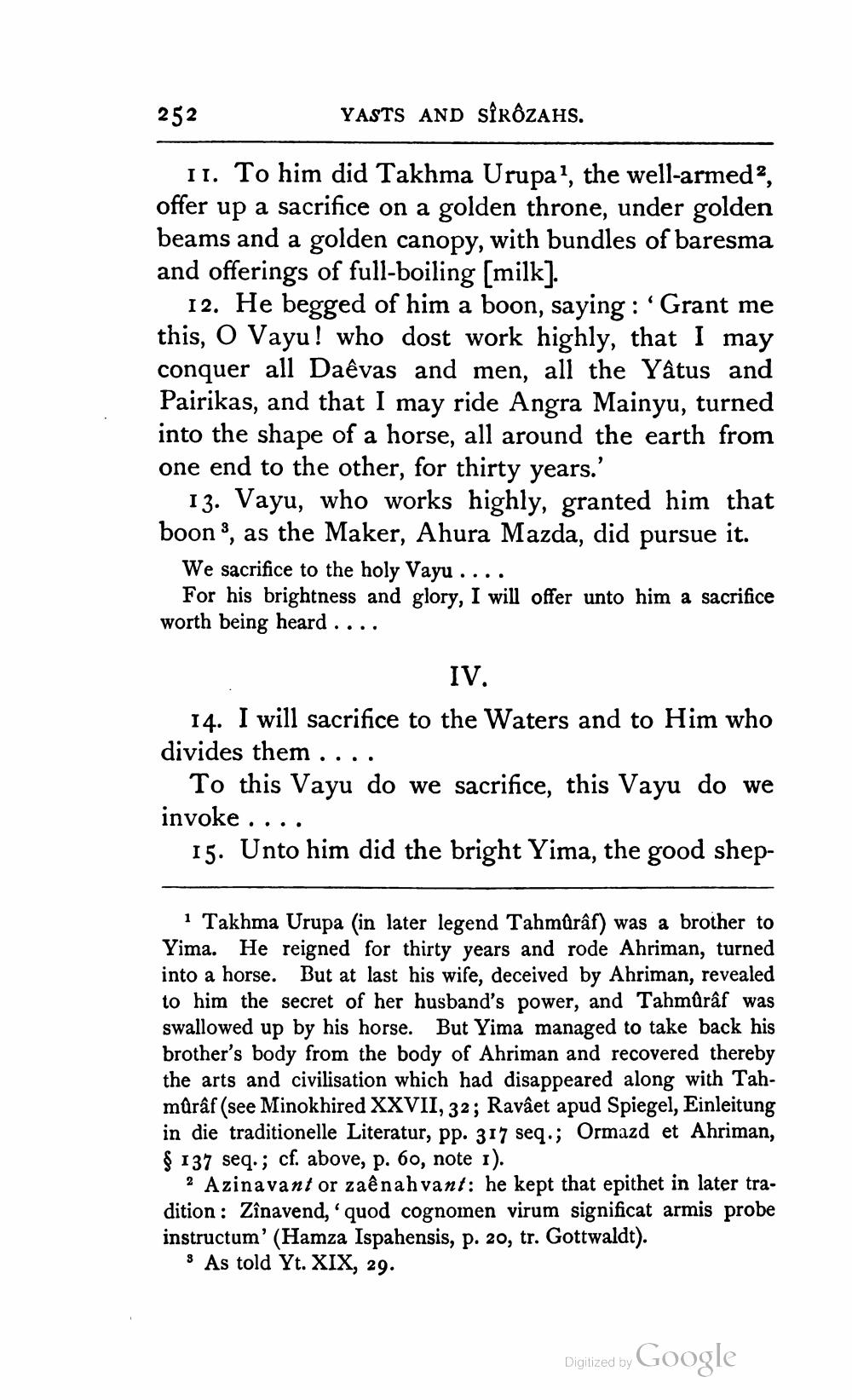________________
252
YASTS AND SÎRÔZAHS.
11. To him did Takhma Urupa', the well-armed?, offer up a sacrifice on a golden throne, under golden beams and a golden canopy, with bundles of baresma and offerings of full-boiling (milk].
12. He begged of him a boon, saying: 'Grant me this, O Vayu! who dost work highly, that I may conquer all Daêvas and men, all the Yâtus and Pairikas, and that I may ride Angra Mainyu, turned into the shape of a horse, all around the earth from one end to the other, for thirty years.'
13. Vayu, who works highly, granted him that boon, as the Maker, Ahura Mazda, did pursue it.
We sacrifice to the holy Vayu ....
For his brightness and glory, I will offer unto him a sacrifice worth being heard ....
IV. 14. I will sacrifice to the Waters and to Him who divides them ....
To this Vayu do we sacrifice, this Vayu do we invoke ....
15. Unto him did the bright Yima, the good shep
1 Takhma Urupa (in later legend Tahmûrâf) was a brother to Yima. He reigned for thirty years and rode Ahriman, turned into a horse. But at last his wife, deceived by Ahriman, revealed to him the secret of her husband's power, and Tahmûrâf was swallowed up by his horse. But Yima managed to take back his brother's body from the body of Ahriman and recovered thereby the arts and civilisation which had disappeared along with Tahmûrâf (see Minokhired XXVII, 32; Ravâet apud Spiegel, Einleitung in die traditionelle Literatur, pp. 317 seq.; Ormazd et Ahriman, $ 137 seq.; cf. above, p. 60, note 1).
? Azinavant or zaệnah vant: he kept that epithet in later tradition : Zînavend, quod cognomen virum significat armis probe instructum' (Hamza Ispahensis, p. 20, tr. Gottwaldt).
8 As told Yt. XIX, 29.
Digitized by Google




